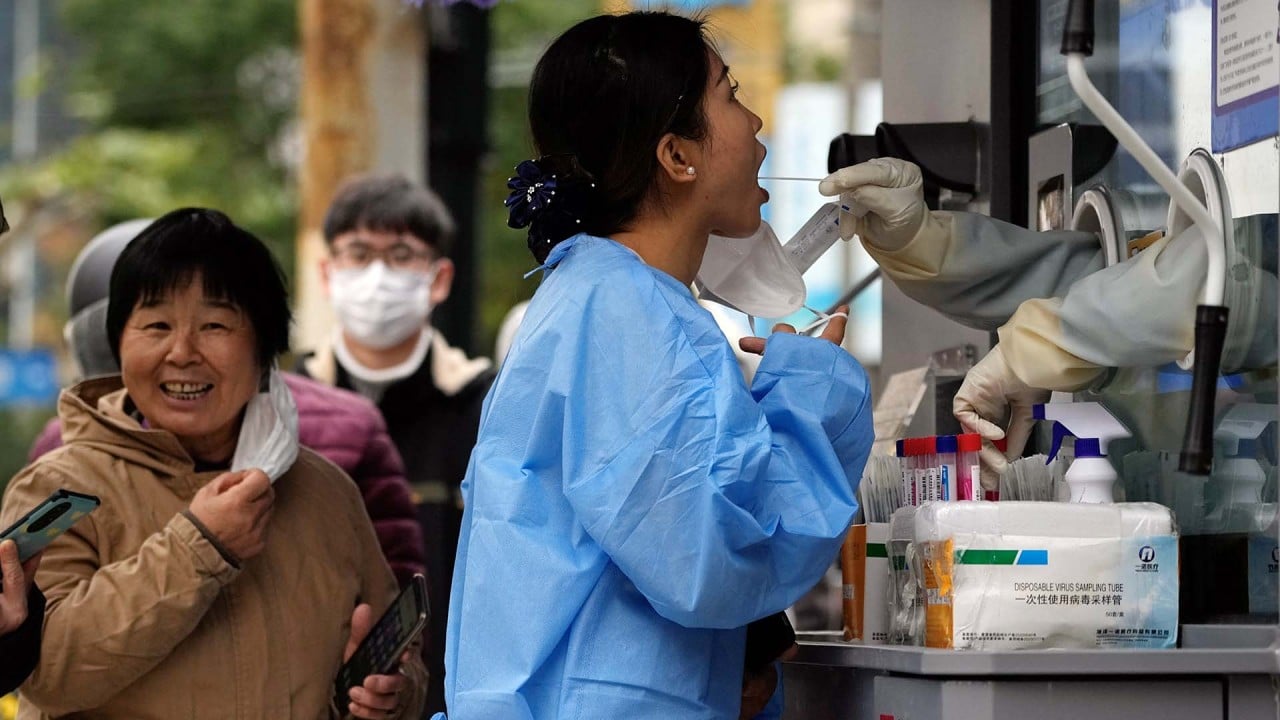
US manufacturers with ties to China applaud easing of Covid-19 restrictions
- But analysts warn that Beijing’s policy change in wake of rare street protests doesn’t necessarily signal stability or a return to the pre-pandemic status quo
- ‘We sense that a crucial corner has been turned on the road to economic recovery,’ says a business group whose members include Apple, Nike and Caterpillar
However, most are bracing for a wave of infections in China that will prevent an immediate shift back to the status quo, and some question the extent to which business-as-usual will lead to a broader improvement in bilateral relations.
Many analysts expected “scenarios where China’s just never going to reopen in a manner or in a way that will look like the China of the past, and so [the public health policy change] is huge”, said Benjamin Shobert, senior associate for international health at the Washington-based National Bureau of Asian Research.
Earlier predictions about indefinite Covid restrictions reflected “really deep concern with [China’s] leadership, about the country’s political stability and also about the economic realities that they’d be navigating if they had stayed on the path that they were on”, he said.
The protests in several major Chinese cities last month that prompted Beijing to change course on Covid-19 followed a meeting between the US and Chinese presidents that many saw halting a seemingly continuous decline in relations.
Amid concern that the Chinese government would double down on its hard-line tactics in fighting the spread of Covid-19, US President Joe Biden’s administration took a wait-and-see approach instead of issuing any warnings. That sparked criticism from some political opponents that he was being weak on Beijing.
“The phasing out of ‘zero-Covid’ practices is a positive development, especially if it ends factory closings, impeded transport within China and other supply chain difficulties that have caused major operational headaches for US companies producing goods in China for the China market,” a spokesman for the business association said.
Inspired by rare mainland protests, Chinese students in North America speak out
“Hopefully, we will see more flights in and out of China and a further reduction of days in quarantine.”
“Unknown is how the government will react in the event of a large-scale spread of the virus,” the spokesman added. “We sense, though, that a crucial corner has been turned on the road to economic recovery.”
The relaxation “is good for the US because the trading relationship between the two countries is still very tight and many US-based companies also have huge manufacturing operations – like Apple – in China”, Liu said.
Apple gauges China supply risks and firms also question reliance on tech giant
“It is good for the frayed relationship because diplomats need to talk to each other, and as indicated by Ambassador Burns, American diplomats also need to visit Americans detained by the Chinese government,” he added.
The US State Department did not respond questions about the prospects for better relations in the wake of Wednesday’s announcement in Beijing, and referred only to comments that Secretary of State Antony Blinken made to The Wall Street Journal on Monday.
“Whether it’s China, whether it’s Iran, whether it’s anywhere else, we stand strongly for the proposition that people should be allowed to voice their opinions, to protest peacefully, to make known their views, and that governments should not take actions” against protesters, Blinken said.
Home isolation ‘inevitable’ if cases surge, China Covid adviser says
Shobert and others pointed out relaxation of Covid measures does not necessarily mean the same thing for domestic dissent.
“There is a tendency for very understandable reasons that … lead us to run the risk of conflating what’s happening and in particular, looking at these decisions and saying this is the first step towards the broader US-China relationship getting back on the right track,” Shobert added. “It’s not that.”

Robert Daly, director of the Wilson Centre’s Kissinger Institute on China and the United States, underscored what he sees as a flaw in the expectation that what is good for business is good for bilateral relations.
“Global media have come to attribute a growing number of China’s economic, social and geopolitical troubles to its zero-Covid policy,” Daly said. “With the softening of those policies, we’ll find out whether this was lazy journalistic shorthand or prescient analysis. Probably the former.
“Nations that have grown more alarmed by China’s actions and intentions over the past few years … will not fundamentally reconsider their perceptions of a China threat” unless they see items including “the rollback of the surveillance state, a true return to a reform agenda … a more moderate approach to Taiwan, and an end to support for Russia.
“Those items are probably not on Xi Jinping’s agenda,” he said.


